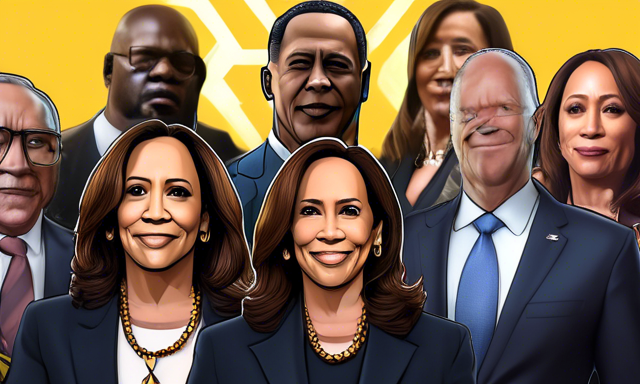Exploring Kamala Harris’s Crypto Stance
As a crypto enthusiast, you may be curious about where Kamala Harris stands on cryptocurrencies. Recent appointments in her campaign team suggest a potential shift in her approach, which could have significant implications for the industry.
David Plouffe’s Influence on Harris’s Strategy
• David Plouffe, a former Obama aide and member of the Binance Global Advisory Board, now serves as Harris’s senior adviser for strategy.
• Plouffe’s experience with Alchemy Pay prior to joining Harris’s team brings valuable insights into strategic planning, compliance, and government relations.
Brian Nelson’s Role in Harris’s Campaign
• Brian Nelson, also a recent addition to Harris’s team, previously held the position of undersecretary for terrorism and financial intelligence at the U.S. Treasury Department.
• Nelson’s involvement in actions against Binance highlights his expertise in dealing with money laundering and sanctions violations.
• Despite his past actions, Nelson’s approach to the industry focuses on regulating illicit activities while fostering innovation.
Engagement with Crypto Community
• Harris’s decision not to speak at the Bitcoin Conference last month raised questions about her stance on crypto.
• However, appointments like Plouffe and Nelson suggest a willingness to collaborate with the crypto industry and address concerns surrounding Harris’s view on cryptocurrencies.
Tim Walz as Harris’s Prospective VP
• Alongside her crypto-related appointments, Harris has named Tim Walz, Governor of Minnesota, as her potential Vice President.
• While Walz’s public statements on crypto are limited, his recent action of establishing a transaction limit for new customers using crypto ATMs indicates potential regulatory interest in the industry.
Hot Take:
As a crypto enthusiast, staying informed about political figures’ views on cryptocurrencies is essential. The recent appointments in Kamala Harris’s campaign team may signal a shift towards a more accommodating approach to the crypto industry, offering hope for constructive dialogue and positive regulatory developments.
Sources:





 By
By
 By
By

 By
By
